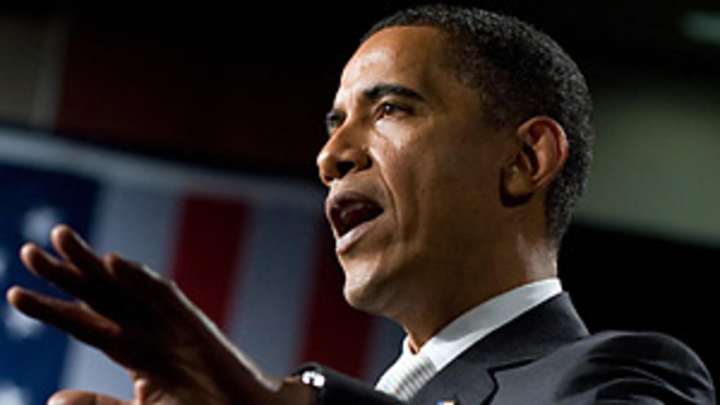Obama appearance potential game-changer for Chicago Olympics bid

The announcement this morning that President Barack Obama will go to Copenhagen to pitch the Chicago 2016 Olympic bid to the IOC membership this week is a potential game-changer. If recent history holds, personal appeals from world leaders sway votes. Granted, Rio will bring Brazilian President Luiz InacioLula da Silva, Spain's King Juan Carlos will stump for Madrid. Tokyo is expected to enjoy firsthand support from incoming Prime Minister Yukio Hatoyama and Crown Prince Naruhito, but no drawing card will be stronger than Obama, who only finalized his decision to attend the IOC Session this morning. The 108 IOC members will make their selection from the four finalist cities on Friday and the final choice is likely to come down to a handful of votes.
Barack Obama's presence was always a possibility, even as the White House initially confirmed that First Lady Michele Obama would attend and the President would likely remain in Washington. The White House sent an advance team to Denmark early last week to prepare for a possible change in plans. This morning, while the Chicago bid team was in rehearsals at the Bella Center, where the group will present its bid and answer questions from the membership, a White House staff member called Chicago 2016 staffers to confirm that Obama would take part. Bid spokesman Patrick Sandusky took out his cell phone and played the announcement as it appeared on NBC's The Today Show for bid chairman Patrick Ryan, who wanted to see it with his own eyes. Though Ryan is beyond cartwheels at this point, Sandusky noted the skip in his step in what is now the homestretch of a bidding marathon. "That's fantastic," Ryan told jumping, before jumping back into rehearsal preparations. Besides the Obamas, the Chicago delegation will include Olympic champions Michael Johnson, Jackie Joyner-Kersee, Bart Conner and David Robinson, as well as Chicago Mayor Richard Daley and talk show host Oprah Winfrey.
So at what point did it become almost compulsory for a head of state to campaign for Olympic bids in person? Try 2005, when British Prime Minister Tony Blair met with IOC members one-on-one in his hotel suite in Singapore on the eve of the G-8 Summit. Blair's ability to conduct meetings in French without an interpreter convinced two French-speaking IOC members to abandon Paris in favor of London at the 11th hour. Switch those votes back and the 2012 Games could be going to France instead of the U.K. When Russian Prime Minister Vladimir Putin still held the Presidential title, his plea to IOC members at the 2007 session in Guatemala helped underdog Sochi overcome long odds to win the right to host the 2014 Games along Russia's Black Sea coast. Since Obama is scheduled to arrive on Friday, the morning of the vote, it was likely that he would participate in the final presentation as Putin did rather than press the flesh with the type of personal pleas Blair made in Singapore.
Since the Salt Lake bid scandal virtually eliminated, or at least reduced, brazen gifts of trips, furs and scholarships for IOC family members, it has been gestures of respect rather than dollars that have won over votes for bidding cities. If you think I'm important enough to send your head-of-state to meet with me, well I might just pay a little more attention to that wonderful new judo facility your bid team is talking about.
Yes, but can President Obama truly influence voters more than the other attending heads of state? Consider the reference that Rio bid chairman Carlos Arthur Nuzman made when presenting his city's bid at the Sport Accord summit in Denver last March. Nuzman summed up his bid not by quoting his country's own president, but by asking three rhetorical questions about Rio's capacity to stage the Games and answering each time by using the Obama slogan, "Yes, we can." At a meeting in New York with reporters last week, President Lula even joked that he would try to stand next to Obama during the group photo at the United Nations General Assembly later that day. He did.
When it appeared earlier this month that President Obama would not attend the IOC Session, Dick Pound, an influential IOC member from Canada, said he suspected the absence could work against Chicago's bid. "Olympic bids are so important these days to the countries that it would be surprising for a country not to send its biggest hitter," Pound told reporters. "If the U.S. doesn't match the others, that is something that will be noticed. If you have a popular and transformational leader and you don't use him, you're not maximizing your chances. I think it could make a huge difference."
Chicagoans will find out on Friday if a difference-maker can also be a game-changer.

Brian Cazeneuve has covered Olympic sports extensively for many years with SI and SI.com.